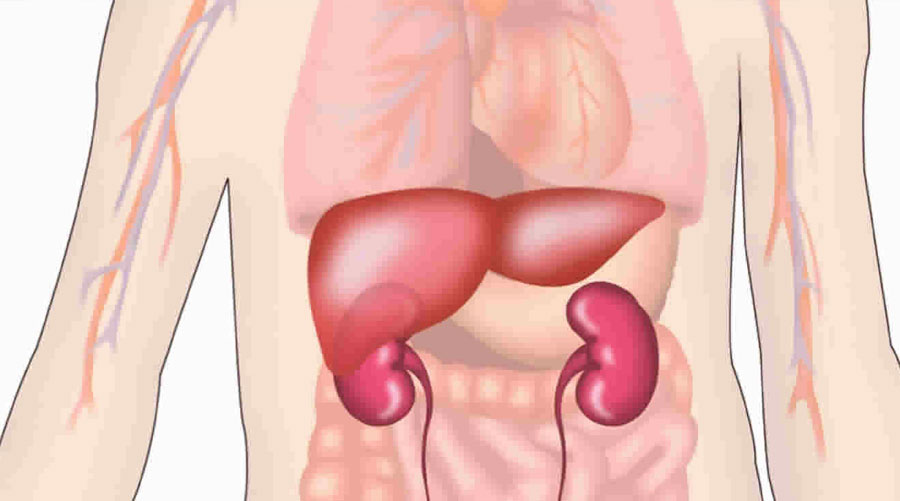
Hepatorenal Syndrome
Hepatorenal Syndrome (HRS) is a serious complication of advanced liver disease in which the kidneys stop working properly, even though the kidneys themselves are structurally normal. It occurs due to severe changes in blood flow and circulation caused by liver failure, leading to reduced blood supply to the kidneys. HRS is a life-threatening condition and requires urgent medical attention.
Causes & Risk Factors
- Advanced liver cirrhosis
- Severe alcoholic hepatitis
- Acute liver failure
- Portal hypertension (high pressure in the liver’s blood vessels)
- Severe infections or gastrointestinal bleeding in patients with liver disease
Symptoms
- Decreased urine output
- Fatigue and weakness
- Nausea, vomiting, and loss of appetite
- Confusion or altered mental status (due to liver failure)
- Jaundice (yellowing of skin and eyes)
- Swelling in the abdomen (ascites) and legs
- Low blood pressure
Treatment & Management
Treatment of HRS focuses on improving kidney function and stabilizing the patient until a more permanent solution is possible. Medications such as vasoconstrictors (e.g., terlipressin) combined with intravenous albumin are commonly used to improve blood flow to the kidneys. Stopping diuretics and correcting dehydration or infections are also important. In severe cases, dialysis may be needed to support kidney function. Liver transplantation is the definitive treatment for HRS, as it addresses the root cause of the condition.
Prevention & Care
Preventing Hepatorenal Syndrome involves careful management of liver disease. This includes avoiding alcohol, treating hepatitis early, maintaining good nutrition, controlling infections, and regular follow-up with a liver specialist. For patients with cirrhosis, early recognition and treatment of ascites and infections can reduce the risk of HRS.



